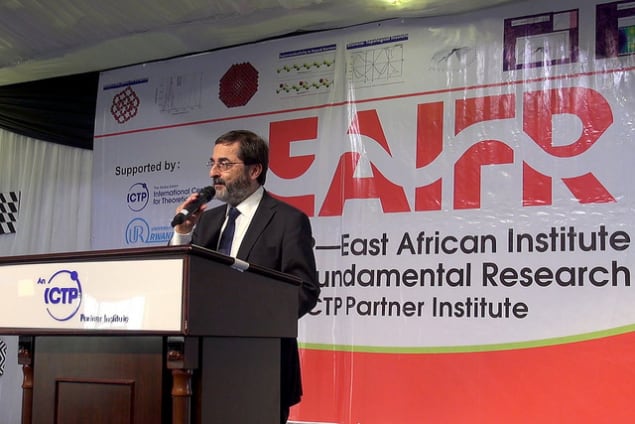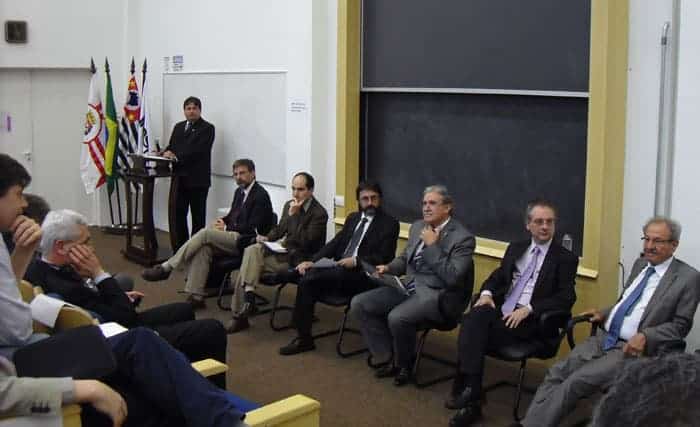
The International Centre for Theoretical Physics (ICTP) in Trieste, Italy, has officially opened its first outpost in Africa. At a ceremony held on 18 October at the University of Rwanda in Kigali, the ICTP-East African Institute for Fundamental Research (ICTP-EAIFR) will aim to raise the quality of science research and education in Africa. It is the third ICTP outpost following institutes in Brazil and Mexico.
The ICTP-EAIFR will focus on research and teaching in high-energy physics, geophysics and condensed-matter physics. The Rwandan government is funding the centre with an estimated budget of $6.5m over the first five years. The ICTP, in collaboration with the University of Rwanda, will provide support in terms of books, personnel and equipment.
“We believe that by developing a critical mass of African scientists and physicists we can work together and make Africa great,’’ says ICTP director and theoretical particle physicist Fernando Quevedo.
The centre is of immense value to the continent to invest in our own human capital and training people in fundamental research
Amanda Weltman
The first intake of 16 students – including nine from Rwanda — have already been selected and the centre will train students through short courses and workshops. ICTP-EAIFR’s interim director Omololu Akin-Ojo told Physics World that the MSc and PhD programmes will match the quality offered by the main institute in Italy. “EAIFR will continue to carry out research and make discoveries for African development and advancement,” he says.
According to Akin-Ojo, Rwanda was selected to host the centre due to the country’s support of science, how easy it is to set up new centres there and the “high level of transparency” in the country. He adds that the centre does not yet have funds for bursaries and scholarships for students, but that they are seeking support “from different sources”.
Making improvements
Theoretical physicist Amanda Weltman from the University of Cape Town says that the ICTP has “immense experience and successful working relationships around the developing world” and that the new centre will foster a range of improvements in Africa from scientific breakthroughs to technological advancements and improving science policy. “The centre is of immense value to the continent to invest in our own human capital and training people in fundamental research,” she adds. Theoretical-physics hub opens in South America
The ICTP-EAIFR is the ICTP’s third foreign-based institute after it opened the South American Institute for Fundamental Research in Sao Paulo, Brazil, in 2012 followed a year later by the Mesoamerican Centre for Theoretical Physics at the Autonomous University of Chiapas in Mexico. The ICTP plans to open its first outpost in Asia — the ICTP-Asia Pacific — in Beijing, China, in November.




